How on earth will we build a whole new world?
Leah Penniman, the co-founder of Soul Fire Farm and author of Farming While Black, talks about healing from generations of land-based trauma and creating a more just food system.
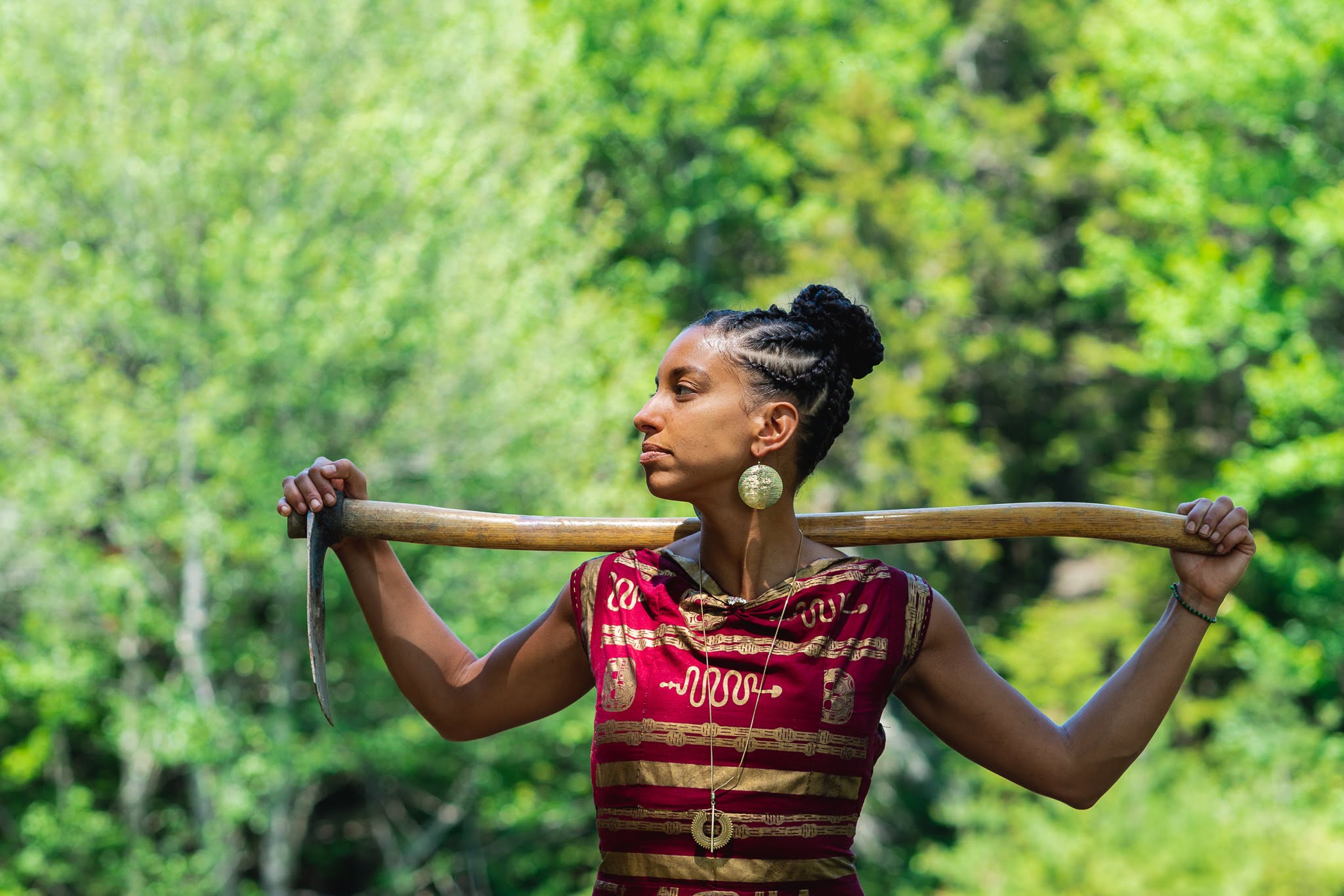
The Ostracon: Dispatches from Beyond Contemporary Art’s Center, an arts writing site by Nicole J. Caruth and Paul Schmelzer, looks at figures and ideas outside the mainstream of contemporary art—from public policy, indigenous rights, and folklore to community organizing, historic preservation, environmental science, journalism, and food justice—that may offer insight into new forms of making art that are more responsive, relevant, and connected to the way we live now as individuals and communities. Taking its name from the pottery shards used in ancient Athens when voting to ostracize community members, the site aims to celebrate, instead of push out, voices from art’s periphery.
Leah Penniman, the co-founder of Soul Fire Farm and author of Farming While Black, talks about healing from generations of land-based trauma and creating a more just food system.

Years ago, when I just began to learn about food justice, I volunteered to help out at a youth-run farm in Brooklyn that had been devastated by a storm. As a thank you to the volunteers, we received a free workshop on garlic at the end of the day. I don’t remember one iota about planting or harvesting garlic, but I’ve never forgotten how the workshop leader, a young white woman, responded when someone asked why the predominantly Black youth who worked there lacked access to healthy foods. “Nothing in the food system happens by accident,” she replied. In other words, unequal access is by design.
Our food system is inseparable from the larger social, economic, and political institutions that place power in the hands of a privileged few while others go without.1Eric Holt-Giménez and Breeze Harper, “Dismantling Racism in the Food System,” Institute for Food and Development Policy/Food First/Food First Books, Number 1, Winter-Spring 2016. https://foodfirst.org/wp-content/uploads/2016/03/DR1Final.pdf Leah Penniman, the co-founder of Soul Fire Farm, calls this “food apartheid—a human-created system of segregations, which relegates some people to food opulence and other people to food scarcity.”2Rochaun Meadows-Fernandez, “How Do We End ‘Food Apartheid’ in America? With Farms Like This One,” AlterNet, June 12, 2017, https://www.alternet.org/food/how-do-we-end-food-apartheid-america-farms-one Located in upstate New York, Soul Fire Farm is a for-profit agriculture venture and nonprofit educational space widely recognized for its “commitment to ending racism and injustice in our food system.” I scoffed a bit the first time I read the farm’s mission statement because any system without racism is almost beyond my ability to imagine. (I acknowledge I have a deep-rooted mistrust from working for too many nonprofits that let racism stand in the way of their mission.) But then I attended Penniman’s lecture at the Rhode Island School of Design last April, and I was challenged to think more deeply about the critical role of imagination in dismantling anything. To quote the cultural strategist Anasa Troutman, “If you are unable to imagine a new story . . . then how on earth are you going to have the imagination to build a whole new world?”
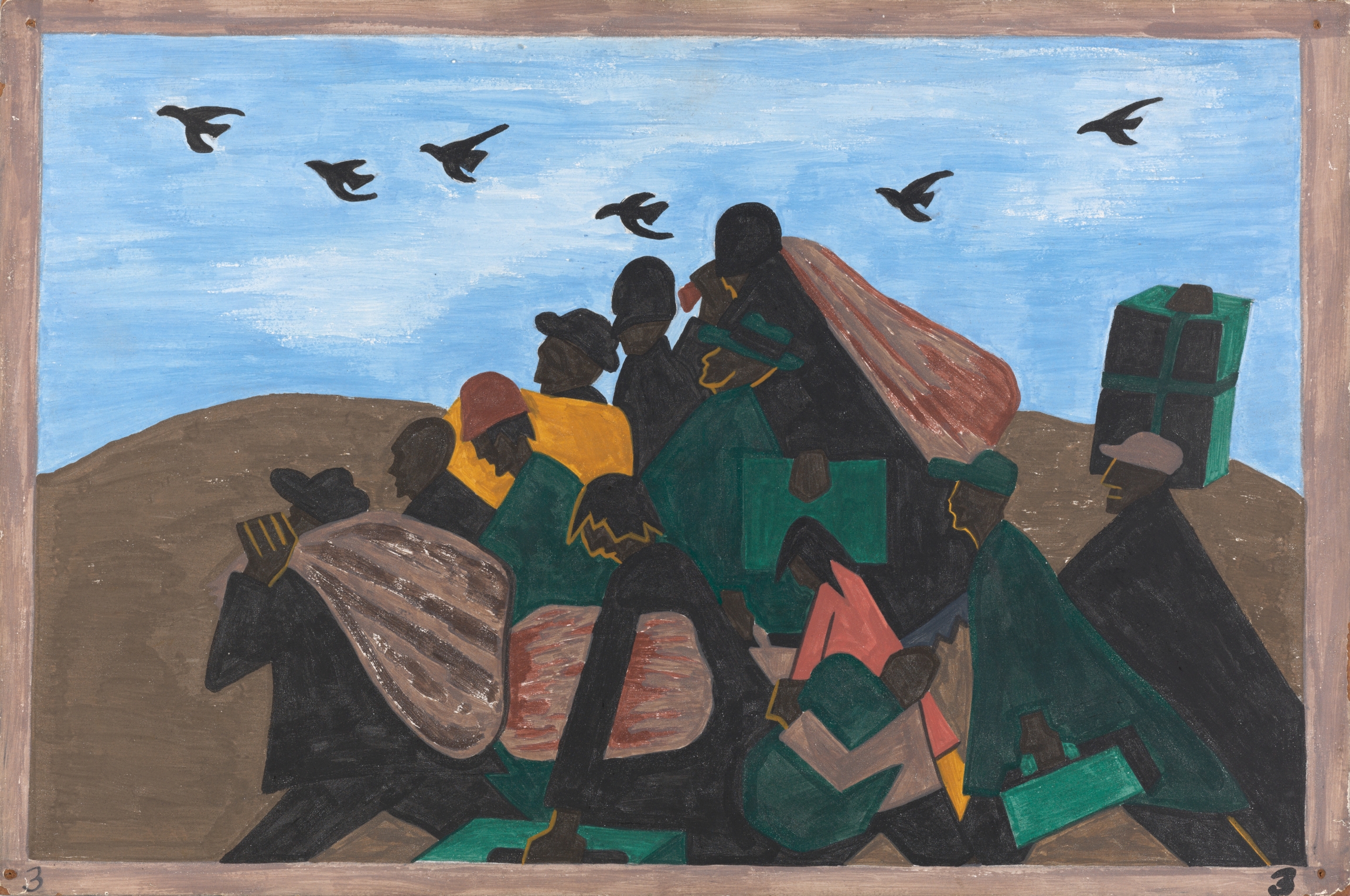
Speaking to a packed house, Penniman told the history of our food system through images—John Gast’s American Progress (1872), photographs of incarcerated men and migrant workers laboring in fields, portraits of Dr. Booker T. Whatley and George Washington Carver, and vintage broadsides. One of the most memorable images li/she showed was an etching depicting African women while explaining how some wove seeds into their hair before being forced to board Middle Passage slave ships. (Penniman’s pronouns are li/ya/she/he. I use li in the remainder of this piece.)3Li is the Haitian Kreyol all-gender pronoun with no possessive form. To learn more, visit the Google Doc, “Pronouns for Leah” at https://docs.google.com/document/d/13e5h2YQ98P_uStshda1xcvNNcOiNvB9jSU8g1LE7HUI/edit “Stolen land and exploited labor are the DNA strands of the food system,” li said. Penniman reminded us that American slavery wasn’t just about labor; it was about acquiring the farming knowledge of African peoples. Li touched on the different periods in centuries of white terrorism, like the rampant lynchings that prompted “the refugee crisis we romantically call The Great Migration.” Li discussed the indignities of factory farms and the invisible contributions of Spanish-language-first migrant workers who make up 85 percent of the farm labor that provides our sustenance. Penniman concluded with an invitation to the audience to reflect on our own stories and lineages in relation to the food system, encouraging us to see ourselves as more than consumers.
At the time, Penniman was on an 18-month international tour for the book Farming While Black: Soul Fire Farm’s Practical Guide to Liberation on the Land. I spoke with li by phone a few months ago, just after the tour was cut short by the pandemic. “I wanted the book to do three things,” li explained while tending crops on the farm. “Be a practical, how-to garden guide that maybe for the first in a long time was written by not a white dude; start to rewrite the narrative of who has contributed to sustainable and regenerative agriculture in a way that uplifts the unique and precious contributions of Black, Indigenous, and people of color; and provide society as a whole, especially those with privilege, with some concrete [examples of] what you can do to create a more just food system.”
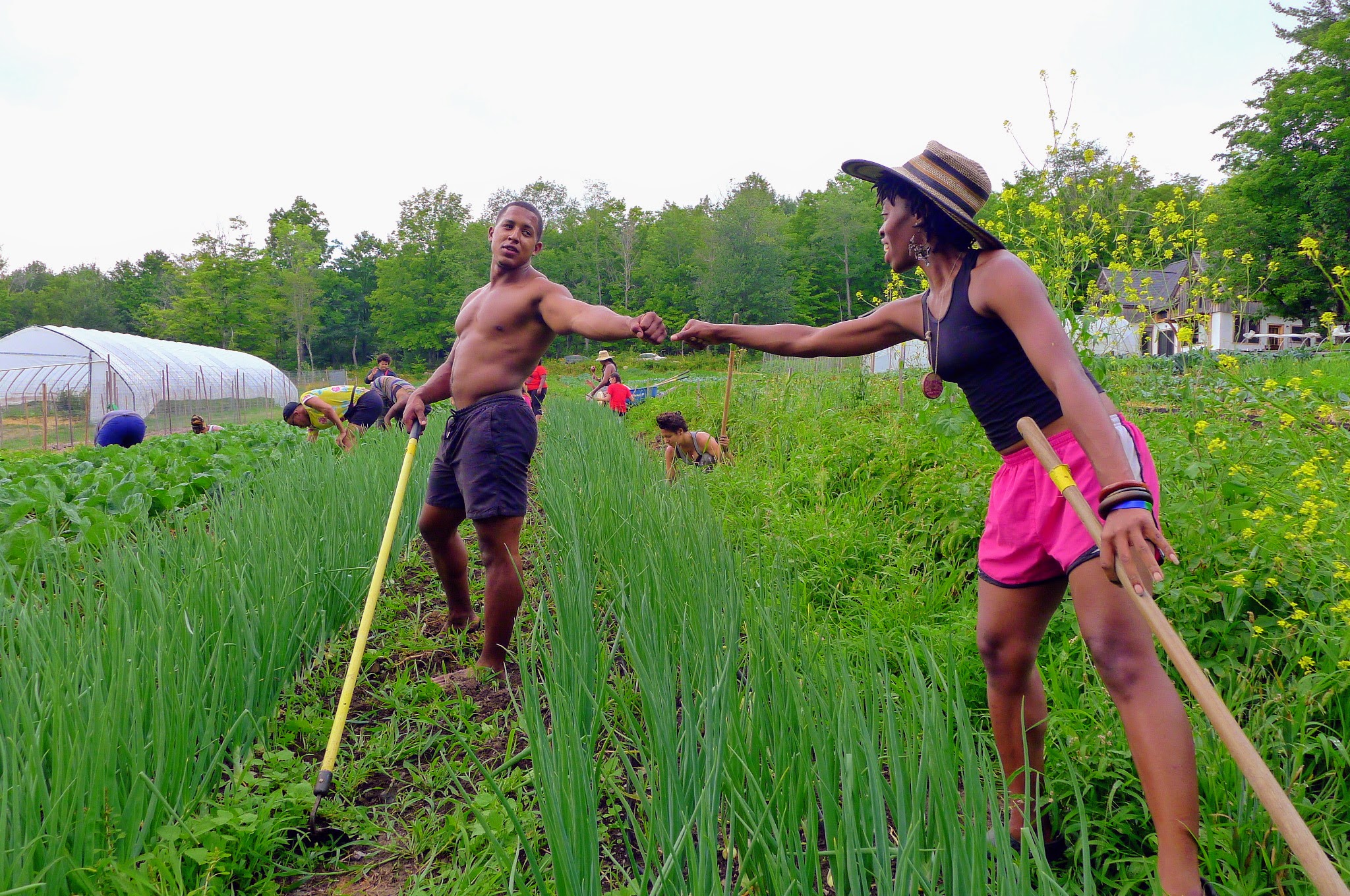
Farming While Black is an easy read yet feels biblical somehow, maybe due to the spiritual tone of the stories and lessons Penniman generously shares with the reader. It feels like a family album, too, a vibrant record of the joy and sweat that Penniman and li’s husband, Jonah, their children, Neshima and Emit, as well as staff, students, and volunteers have put into the land over the last ten years. In side columns throughout the book, Penniman situates Soul Fire Farm in a larger historical context through short backgrounders on agricultural practices and food justice influencers, including the Black Panthers, the Detroit Black Community Food Security Network, and Karen Washington of Rise & Root Farm and Black Urban Growers, who wrote the book’s forward.
Highly conscious of the hero-industrial complex (the belief that a person arrives at success all alone, driven by their own genius), Penniman actively acknowledges those who came before or work alongside li, like Washington. Revered in the food world, I’ve always known Washington from afar as the woman who audaciously turned an empty lot in the Bronx into a garden long before it was the hipster-gentrifier thing to do. It was Washington who taught Penniman the concept of food apartheid. As li has said in another interview, “I would not be a farmer if it were not for [Mama Karen], because when I was a young woman—I was a teenager just getting into farming—I had a lot of doubts about whether I belonged in that movement as a Black woman.”4Karen Washington and Leah Penniman, “You Belong to the Land: A Conversation with Karen Washington and Leah Penniman,” Center for Humans and Nature. Accessed at https://www.humansandnature.org/you-belong-to-the-land-a-conversation-with-karen-washington-and-leah-penniman Washington helped li understand that Black farmers not only “have a noble legacy thousands of years old going back to the continent, but are the stewards of the future.” This resonates deeply as the COVID-19 pandemic underscores how critical farmers are to our survival and the longevity of this earth. The world as we know it is transforming and we have no idea what it will become, but the food system—how we eat, honor the land, and treat each other—is central to that transformation.
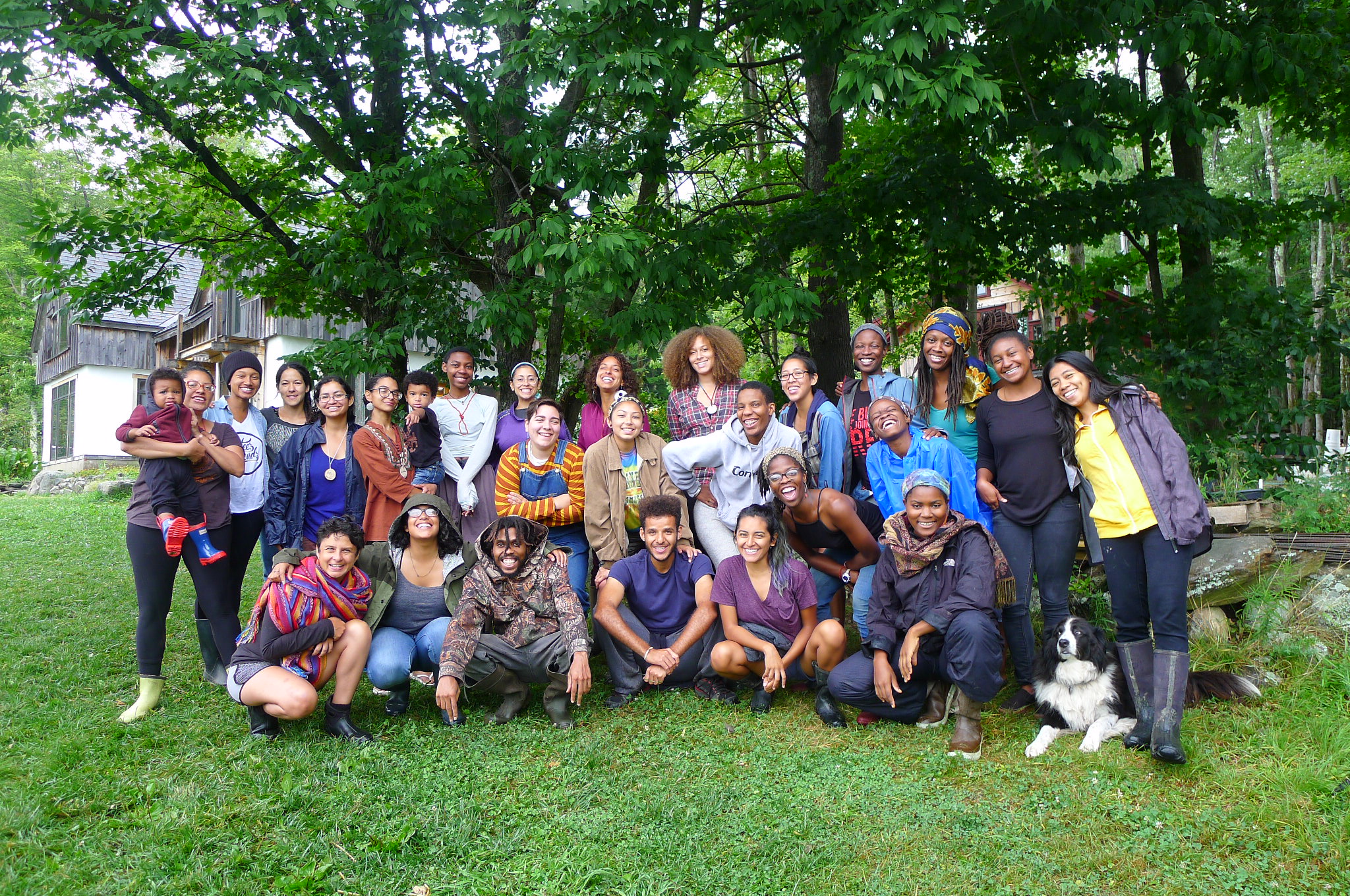
Soul Fire Farm predominantly works with African American, Indigenous, and Latinx communities. “What that means is we’re working with folks who have experienced generations of land-based trauma—slavery, sharecropping, the guest worker program, convict leasing, and more,” said Penniman. “That trauma is passed down and influences the way people relate not just to the land but to each other and to themselves, their own sense of purpose and worth and possibility. If we’re going to be in the business of calling people back to the land, part of it is paying attention to that trauma.” As much a farmer as a healer, in Farming While Black Penniman outlines the diasporic healing rituals employed at Soul Fire Farm such as dance, story circles, spiritual baths, and Haitian stone balancing. “These technologies have thrived for thousands of years because they’re very effective,” li says. “It’s important for us to make them accessible to folks who might have been disconnected previously.” Penniman’s work is art adjacent, and li’s healing practice extends to the collective Harriet’s Apothecary, founded by the artist Adaku Utah. The Apothecary members include Penniman’s sister, Naima Penniman, Soul Fire’s program director and one half of the acclaimed spoken word duo Climbing PoeTree.
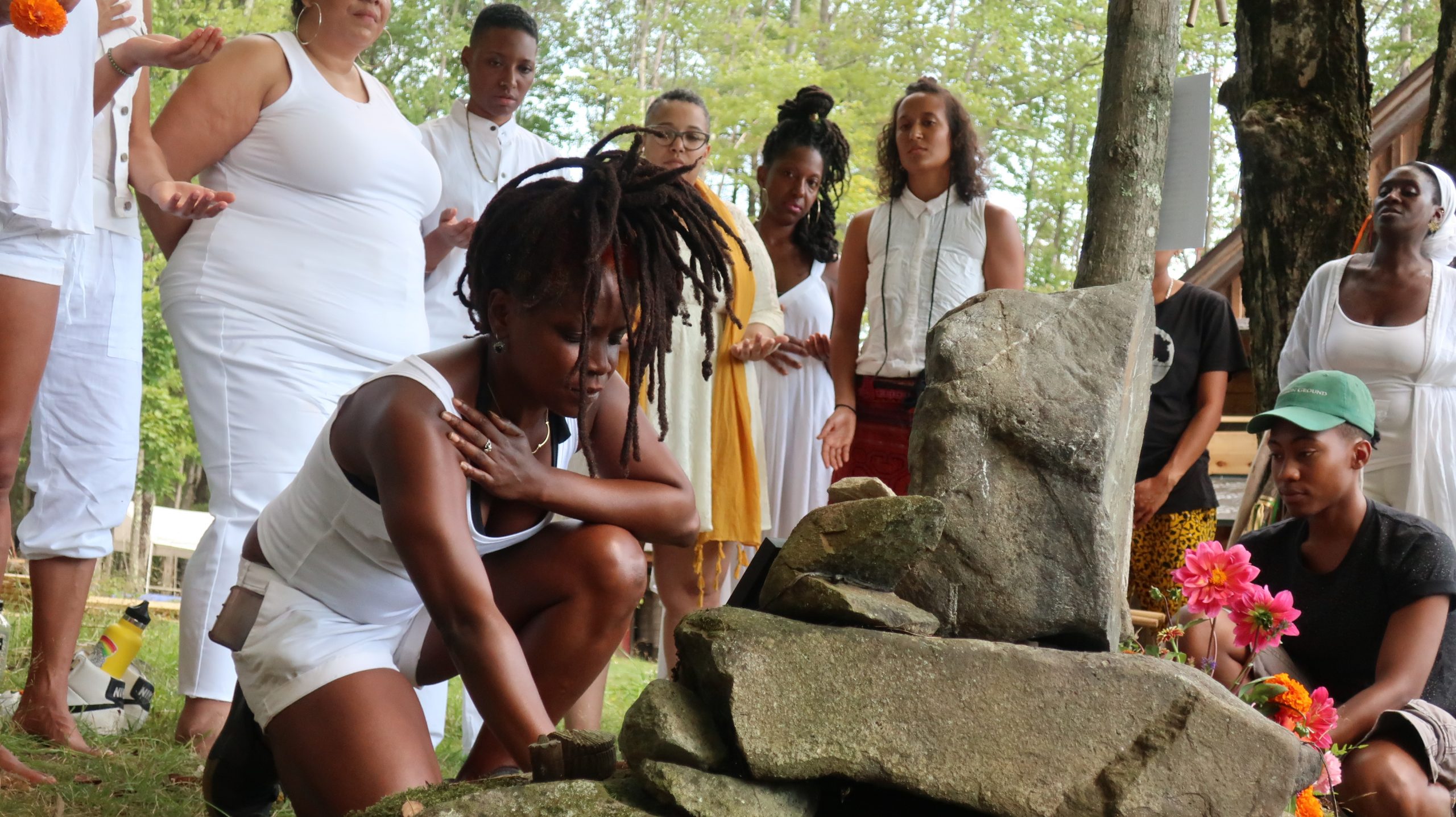
Soul Fire’s work to heal historical and contemporary racialized traumas is deeper than the soil they till. In 2016, they worked with the Movement for Black Lives, contributing to the policy visions for economic justice and reparations. Then, they contributed to the Green New Deal through their work with various coalitions. More recently, they were tapped by both the Warren and Sanders campaigns to help develop their farming platforms. And Soul Fire continues to work with Heal Food Alliance, “a multi-sector, multi-racial coalition building collective power to transform our food and farm systems.” They’re also regular “rabble-rousers” around the Farm Bill. Their advocacy efforts are modeled in their own policies. For example, they’ve spent years developing relationships to establish a “cultural respect easement” that would allow Mohican citizens to use Soul Fire land, which was historically stewarded by the Stockbridge-Munsee Band of the Mohican Nation, “for ceremonies and wildcrafting in perpetuity.”
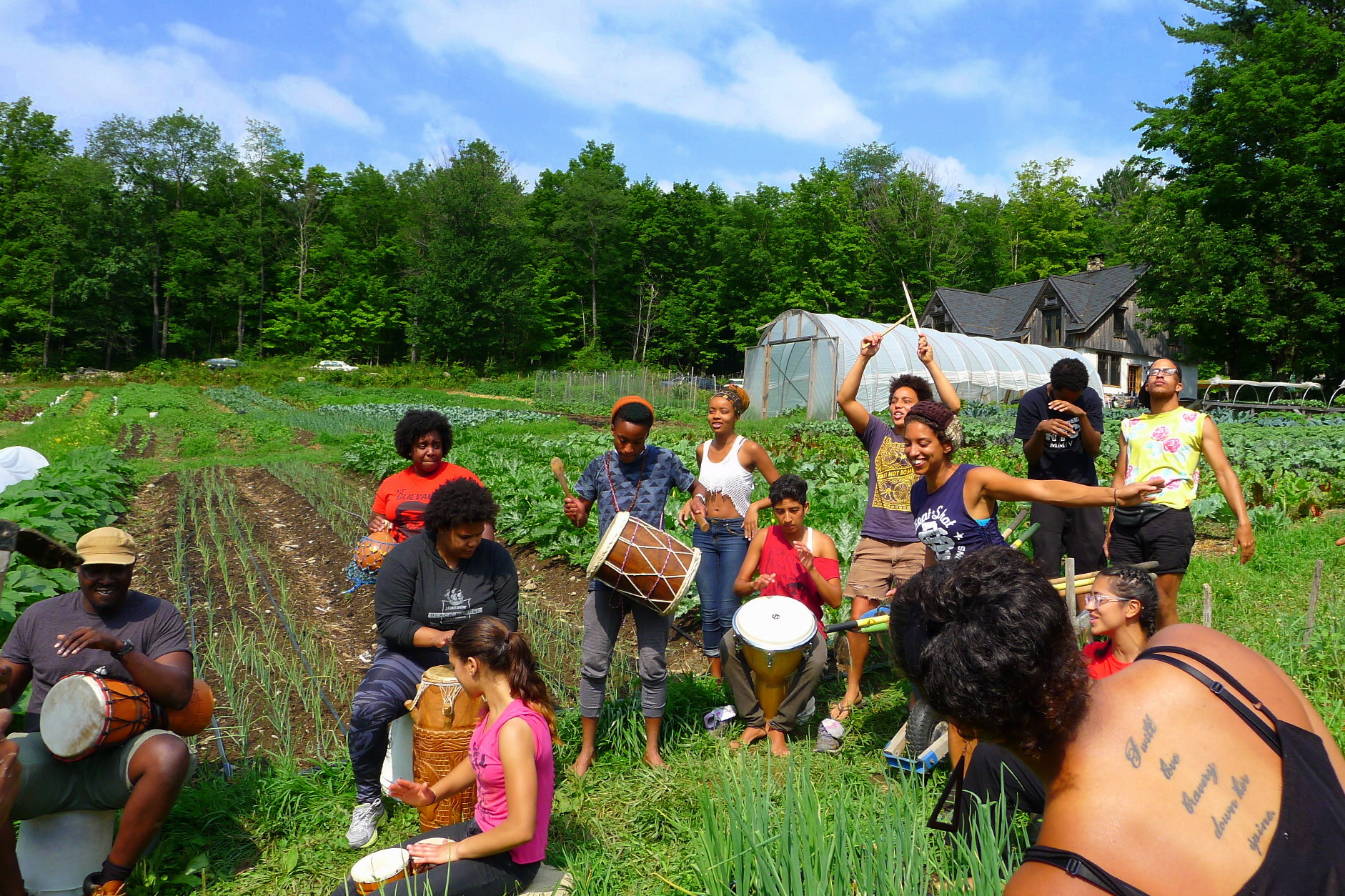
The so-called food movement promoted in mainstream media is largely driven by white folks who focus on individual choice, not systemic issues or community health. “I want us to question why we’re calling something a ‘movement’ that doesn’t center the needs of those most impacted by food injustice,” says Penniman. “We really have to be listening to the wisdom of frontline communities and making sure that they have the resources they need to thrive.” Soul Fire’s typically sold-out Farming Immersion program for Black, Indigenous, and Latinx heritage growers, and Uprooting Racism in the Food System training is where that work is most visible. The latter is not your typical diversity, equity, and inclusion training, says Penniman, because Soul Fire uses a reparations framework focused on action. As anti-racism resources are circulating online in response to the murders of George Floyd, Breonna Taylor, Ahmaud Arbery, and so many others, Farming While Black is frequently cited—evidence of the book’s efficacy and definitely a sign of how much better our world would be if more people were working with the Soul Fire spirit.
Penniman cites feeding others during a summer internship at The Food Project in Boston as a turning point in li’s life as a farmer. But I wondered about li’s shift toward organizing and activism. “It’s always been,” said Penniman, from running li’s elementary school ecology club to protesting alongside li’s parents, both former members of the clergy, who were “very active” in the civil rights movement. “There are pictures of me with my crayon sign ‘No More War’ on my mom’s shoulders. I thank my parents for being that example of social justice warriors and caring deeply about community.”